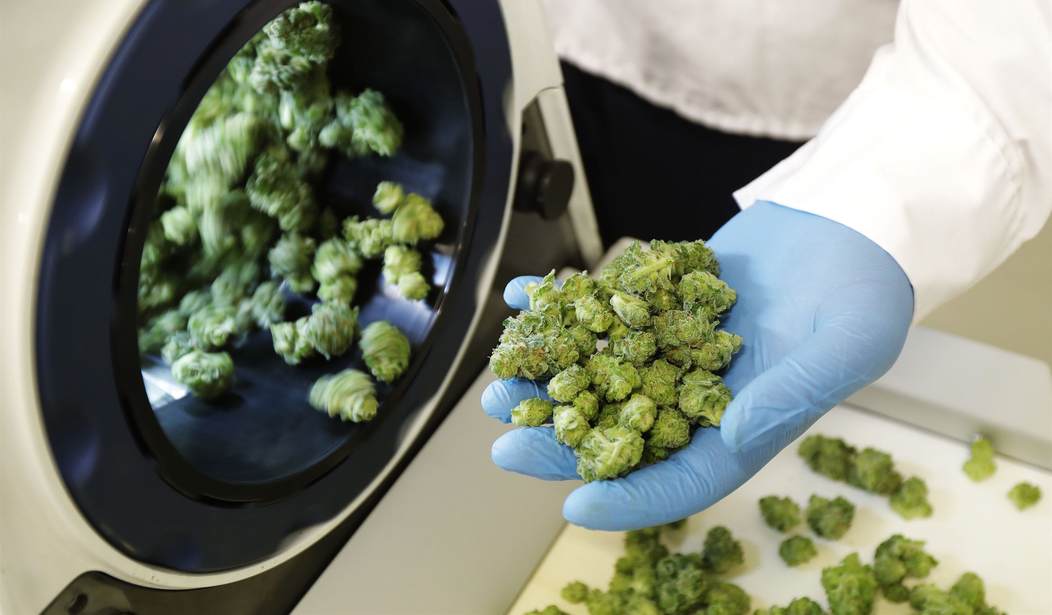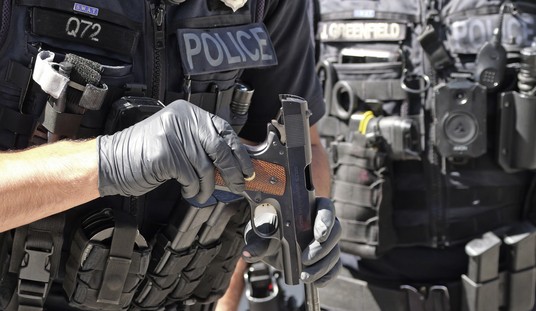The Fifth Circuit Court of Appeals may have ruled that the federal statute prohibiting “unlawful” users of drugs from legally possessing firearms is a violation of the Second Amendment, but Joe Biden’s DOJ is still arguing that even in states that have decriminalized or legalized possession and use of cannabis those who imbibe can be stripped of their right to keep and bear arms without violating their rights.
It’s expected that DOJ will appeal the Fifth Circuit decision to the U.S. Supreme Court in the coming weeks, but in the meantime they’re brushing off the impact of the decision and trying to convince the Eleventh Circuit Court of Appeals to keep the law in place despite a challenge from several Florida residents who say the statute violates their Second Amendment rights.
In a filing in the Eleventh Circuit Court of Appeals on Friday DOJ attorneys acknowledged the Fifth Circuit’s decision in U.S. v. Daniels, but argue that the appellate court got it wrong when it determined that the history, text, and tradition of the Second Amendment doesn’t allow for prohibitions on gun ownership merely for using an intoxicating substance, though laws forbidding the use of a firearm while intoxicated are longstanding and presumptively lawful.
With oral arguments scheduled for next month in the Florida case, the Justice Department said the separate ruling last week “departs from the numerous circuit and district court decisions upholding § 922(g)(3)’s constitutionality.”
“In deviating from those precedents, Daniels relied on the Fifth Circuit’s prior decision in United States v. Rahimi, a case in which the Supreme Court recently granted the government’s petition for a writ of certiorari,” it said, referencing a case where the court maintained that laws prohibiting people convicted of domestic violence from possessing guns are unconstitutional.
“For the reasons given in the government’s brief in this case, Daniels is incorrectly decided and § 922(g)(3) accords with the Second Amendment,” the Justice Department said.
The trial in the Florida case has been set for October, and by the time it begins SCOTUS may have already decided whether or not to hear the Daniels case. Unlike the Florida lawsuit, which was filed by medical marijuana cardholders, Patrick Darnell Daniels’ case was brought by DOJ itself when federal prosecutors filed charges under Title 18 U.S.C. § 922(g)(3). As the Fifth Circuit noted, Daniels had admitted to smoking pot 14 times a month, but the government “presented no evidence that he was intoxicated at the time of arrest, nor did it identify when he last had used marihuana.” That didn’t matter to the jury, who convicted Daniels of being an unlawful user of drugs in possession of firearms, and he was sentenced to nearly four years in federal prison as a result.
That’s a much stiffer sentence than the deal offered to Hunter Biden for violating the same federal statute, which would have allowed him to enter into a pre-trial diversion program and avoid prison altogether, but the Fifth Circuit maintains that the statute itself is unenforceable because it does not comport with the text, history, or tradition of the right to keep and bear arms. Biden’s DOJ takes the position that virtually any violation of any law renders your Second Amendment rights moot, and that includes toking up even in states where it’s legal to do so. In fact, as the plaintiffs have argued, the DOJ’s position actually goes even further and implicates every right of “the people” enshrined in the Constitution.
Adopting the Appellee’s argument that Cooper and Hansell’s state lawcompliant medical marijuana use renders them outside “the people” would have wide-ranging and severe consequences. As an initial matter, that would mean that such patients not only have no Second Amendment rights, but they also do not possess First or Fourth Amendment rights. That is because, as this Court has explained, “the people” is a term of art used in each of those sections of the Constitution. There is no reason to believe that the meaning of that phrase varies “from one provision of the Bill of Rights to another.”
It is one thing to argue that such state law-compliant medical marijuana users’ right to bear arms can be restricted due to historical precedent. It is another to conclude that the Bill of Rights essentially does not apply to Cooper and Hansell. There is no reasonable way to comport the latter position with the Second Amendment’s individual nature or Heller’s strong presumption that all persons possess such core rights. For these reasons, the Court should conclude that the Appellants are within “the people” the Second Amendment protects and focus its time and attention on the historical support (or lack thereof) for the Challenged Laws.
And as the plaintiffs argued to the Eleventh Circuit, the DOJ has yet to identify a single statute from the era of the Second or Fourteenth Amendments’ ratification that “is analogous to completely disarming a person based on his or her general use of an intoxicating substance.”
Instead, all of the regulations the Appellees rely upon related to only certain events, holidays, or locations. Beyond that, many of those laws expressly permitted individuals to possess firearms at those times and places, as long as they did not discharge them.
This inability to show a “distinctly similar historical regulation” to the Challenged Laws is “relevant evidence” of their invalidity. The offered analogues “imposed a far narrower burden” than the Challenged Laws, and they “left ample room for the exercise of the core right to armed self-defense.”
Heller makes the weakness of the Appellees’ historical arguments even clearer. One of the historical regulations that the Appellees rely upon in this area is a 1771 New York regulation that prohibited the discharge of firearms on or around New Year’s Eve. The Heller majority deemed it “inconceivable,” though, “that this law would have been enforced against a person exercising his right to self-defense on New Year’s Day against such drunken hooligans.” However, this outcome would be all but assured for Cooper and Hansell, whose state law-compliant medical marijuana use renders them legally prohibited from defending themselves with a firearm under any circumstances. That these laws operate in a manner Heller viewed as “inconceivable” is even further evidence of their invalidity.
In summary, a New York resident in 1771 could bring a firearm to an alcoholfueled New Year’s Eve celebration, but they were not permitted to discharge it. Based on that and similar historical laws, the Appellees contend that state lawcompliant medical marijuana users can never legally possess a firearm, no matter their location or state of mind. This strained analogy is equally illogical and ahistorical.
“Illogical and ahistorical” is a pretty good description of the Biden administration’s war on gun owners in general, as well as the DOJ’s subjective enforcement of § 922(g)(3) specifically. If you’re a gun owner caught with a couple of joints and a couple of firearms you could be looking at four years or more in a federal prison… unless, of course, you’re the president’s son, in which case DOJ will bend over backwards to give you a sweetheart plea deal and allow you to avoid prison even after admitting to buying a firearm while you were smoking crack “every fifteen minutes.” The DOJ’s stance on “law-abiding citizens” and the Second Amendment is absurd on its face, but it’s even more ridiculous given how subjectively the statute is applied in practice.








